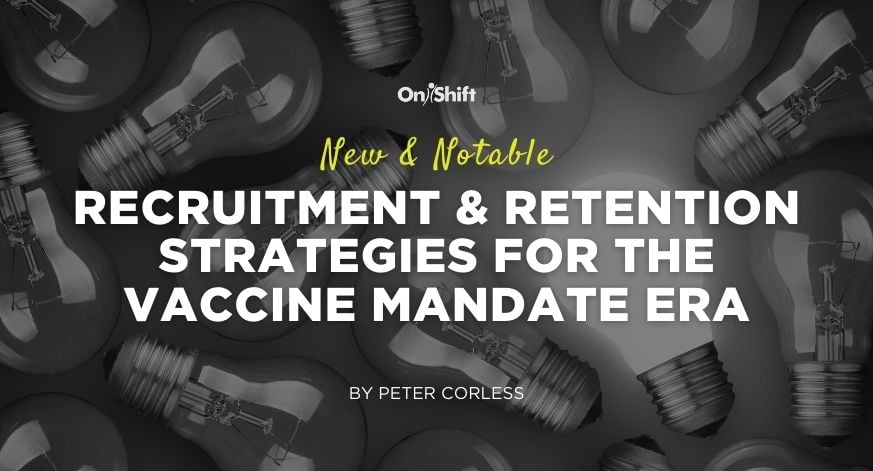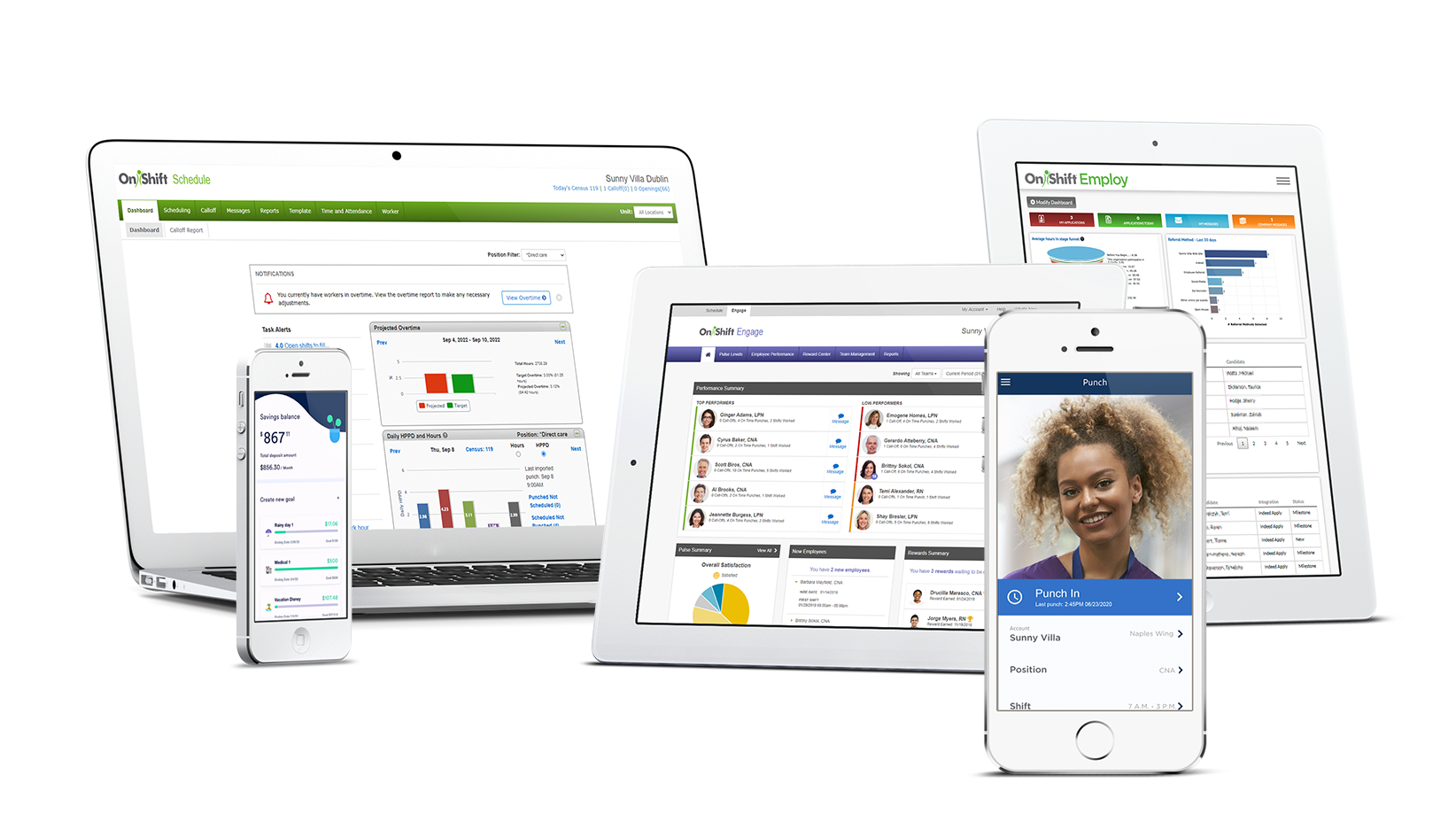August 26, 2021 | Peter Corless
August 26, 2021 | Peter Corless
 President Biden’s announcement last week that all nursing home staff must be vaccinated to continue to receive Medicare and Medicaid funding was met with an array of reactions. On the one hand, this is a major step forward in protecting the population of people most vulnerable to the virus. On the other hand, nursing homes rightfully fear that inevitable employee turnover will only add to the current staffing challenges. Many frontline workers would rather seek employment elsewhere than receive the vaccine despite providers’ best education efforts.
President Biden’s announcement last week that all nursing home staff must be vaccinated to continue to receive Medicare and Medicaid funding was met with an array of reactions. On the one hand, this is a major step forward in protecting the population of people most vulnerable to the virus. On the other hand, nursing homes rightfully fear that inevitable employee turnover will only add to the current staffing challenges. Many frontline workers would rather seek employment elsewhere than receive the vaccine despite providers’ best education efforts.
Although organizations like AHCA/NCAL and Leading Age are voicing their concerns and making suggestions to improve the mandate, this development means that organizations must be even more diligent in their recruitment and retention efforts in the coming months. Here are a few of the latest and greatest best practices on those fronts that you can consider adding to your toolkit, regardless of what the future holds.
A Novel Nurse Retention Program
McKnight’s recently reported the outstanding results of a program launched by Tobin and Associates, Inc. via a Civil Monetary Penalty Grant. They conducted their Nurse Leadership Training Program in Ohio from January 1, 2018, to December 31, 2020, and garnered some extremely impressive results.
“The purpose of this grant was to evaluate if training nurse leaders in team-building leadership skills would affect nursing turnover and resident and family satisfaction.” says Peg Tobin, RN and president of Tobin & Associated, Inc. “The project concentrated on developing leadership abilities that affected engagement and retention of direct care staff, such as effective communication, managing expectations, accountability, delegation and mentorship.”
The goals of the program were to decrease the direct care staff turnover rate by 5% with additional 1% decreases in CY 2019 and in CY 2020; and to increase resident and family satisfaction scores by 7% each for CY 2018, with additional 2% increases in both surveys in CY 2019 and CY 2020.
In the end, they surpassed their goals, increasing family satisfaction by 10%, resident satisfaction by 17%, and decreasing staff turnover by a whopping 53% over the 3-year period. And these results were in spite of the unplanned COVID-19 pandemic in 2020.
But other unforeseen wins emerged because of the training. Nurses were inspired to create their own innovative programs within their communities, such as a CNA committee and new patient communication systems. Others encouraged managers to more regularly leave their desk and comb the floor to interact with staff and residents while one community conducted a cost analysis that led to an increase in pay for workers. Another started a Facebook page as a resource for nurse leaders that has already garnered a huge following.
You can read more about the results of the program here.
An All-Hands-On-Deck Recruitment Effort With Record-Breaking Results
Eclipse Senior Living conducted a “National Hiring Day” this past June across their 100+ communities in 25 states. The event was modeled after something similar conducted by retailer Nordstrom. They partnered with their marketing team to advertise the 24-hour event and they asked their associates to share the campaign with their social networks to cast the widest net possible.
They also reached out to over 1,200 former employees that had left their organization on good terms and invited them to re-apply. Sara Lee, VP of HR at Eclipse, said that while the results varied from community to community, the company was able to collect 400+ applications during the 24-hour period, with one location extending 12 job offers in one day. Additionally, Eclipse re-hired 60 formers associates, double the number of new hires they’d made in any other month year to date, Lee explained.
“Getting resourceful, replicating this innovative approach, and having fun along the way provided us an opportunity to add new associates to re-invite others that left us in good standing to join our company again and care for our beloved residents," said Lee during a recent McKnight's Webinar with OnShift.
An Employee Vaccine Mandate With Limited Turnover
Long before Biden’s vaccine mandate for nursing homes, a Philadelphia-based community took matters into their own hands when they were struggling to achieve even a 50% vaccination rate. Employees were informed in early February that they needed to get inoculated by May 1 as a condition of employment (COE). Well aware of the potential impact this could have on staffing, leadership strategically conducted uptake activities, including education sessions, a series of communications and five on-site vaccination clinics in the months leading up to the deadline.
Of their 250 employees, three had religious or medical exemptions, four had been on a leave of absence and only 17 (6.9%) chose to seek employment elsewhere. The team that conducted the case study on the community concluded that timing, communication and COVID-19 information sharing were critical to mitigating staffing challenges.
“With nearly three months between the decision to pursue a COE and the COE effective date, both staff and leadership could make future plans. Staff could evaluate other employment options and the nursing home could explore contingency staffing plans,” the authors concluded. “Respectful and frequent face-to-face communication between staff and organization leaders was essential in creating community investment and acceptance of vaccination.”
Another key takeaway: “The inclusion of staff members in decision making and COVID-19 information sharing can increase confidence in both the message and the institution." You can view the full report here.
Subscribe to the OnShift Blog
Recent Posts
Categories
About Peter Corless
Peter Corless is Executive Vice President of Enterprise Development for OnShift. Peter is a recognized HR leader in post-acute care and is well-known for his achievements at some of the country’s largest post-acute care organizations, including Kindred Healthcare and Genesis HealthCare. As an experienced, chief administrative and human resources officer within these organizations, he developed strategies that reduced turnover, improved recruiting and hiring strategies, and reduced labor costs.
See for yourself why thousands of providers rely on OnShift’s innovative software for recruitment, hiring, workforce management, pay and engagement. Request your personalized demo today.
